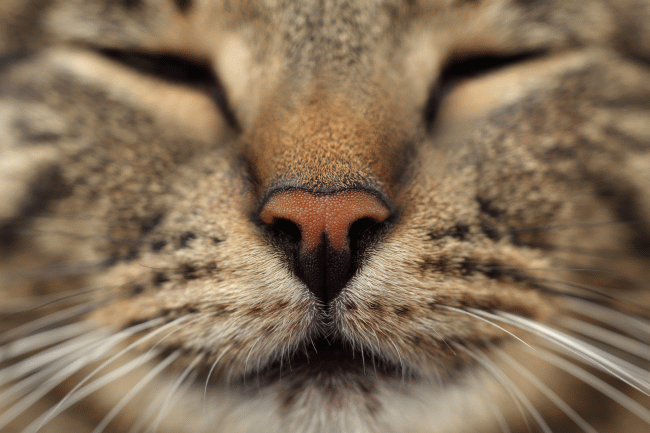 Some of the most popular videos on the internet are clips of kitties doing funny things. Mixed in with the videos of cats chasing bugs and lasers, or falling and tumbling, are clips of cats sneezing. This is adorable to witness, and seeing a pet sniffle or sneeze periodically generally occurs without raising any concern, and is rather viewed as an entertaining spectacle. However, if you are required to say “gesundheit” several times a day, you may want to consider looking into the causes for your cat’s behavior, as it may be symptomatic of a significant health concern. Find out how to tell the difference between allergies and illness when your cat starts to sneeze.
Some of the most popular videos on the internet are clips of kitties doing funny things. Mixed in with the videos of cats chasing bugs and lasers, or falling and tumbling, are clips of cats sneezing. This is adorable to witness, and seeing a pet sniffle or sneeze periodically generally occurs without raising any concern, and is rather viewed as an entertaining spectacle. However, if you are required to say “gesundheit” several times a day, you may want to consider looking into the causes for your cat’s behavior, as it may be symptomatic of a significant health concern. Find out how to tell the difference between allergies and illness when your cat starts to sneeze.
Allergies
One reason a cat might sneeze, is if he has some respiratory reaction to some fragrance, or that he simply has allergies. Felines can suffer from an abundance of different allergies, whether they are seasonal allergies from pollination, sensitivity to certain indoor plants and flowers, food sensitivity, exploring dusty areas, or even certain medications. When determining whether or not your cat’s sneeze attack is simply an allergic reaction, consider asking the following questions:
- Are any windows open, letting in pollen, plants or fragrances that might be causing the cat to sniffle?
- Did the neighbor just mow his lawn, sending hay fever fumes in through the front door?
- Watch your cat; did his sneezing start after he was pawing at the dusty curtains, or if he has just come out from under the couch, or down from the bookshelf?
- Has he been poking around areas where there might be dust bunnies or old toys and clothes that are covered in lint?
- Does the cat also have watery eyes, or seem to have trouble breathing from a stuffy nose?
Other contributing factors that your cat might be physically responding to: flea medication, insecticides, perfumes, fragrant cleaners, smoke and cigarettes, aroma therapy candles, dust mites, and old cat litter. If your cat is exposed to any of the delineated items, his sneezing might simply be an instant attempt to dispel whatever fragrance or particle is agitating him.
Cats with smaller breathing canals and short muzzles are more likely to suffer from irritant-instigated sneezing. Such breeds are:
- Persians
- Exotic Shorthairs
- Himalayans
- Bombays
- Selkirk Rexes
- Scottish Folds
- American Shorthairs
- British Shorthairs
Illnesses
Like humans, cats tend to sneeze when they are battling some kind of infection or illness. Two of the most common kinds of viral infections that cause sneezing in cats are feline herpesvirus and feline calicivirus. Both of these diseases are evident by watery eyes, runny noses, sneezing, and in severe cases, a fever. If a sneezing cat also has particularly pungent breath and swollen gums, he might be suffering from oral diseases such as tooth decay, causing irritation in mouth and respiratory tract. Sneezing, trouble breathing, or wheezing noises might also be a sign that your cat is developing asthma or may have lung weakness and other respiratory issues. If your cat’s sneezing persists several times throughout the day without any apparent stimulant or evident agitation, or if he is exhibiting other physical signs of illness or exhaustion, take him to the vet for a diagnosis as soon as possible.

